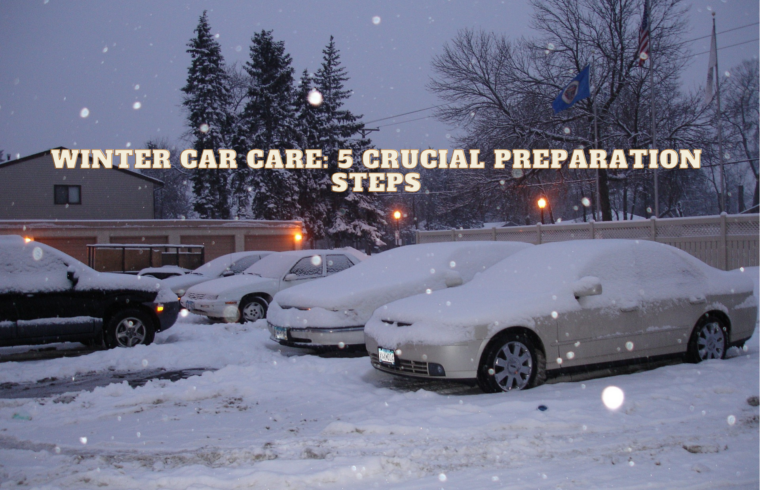We’re moving into the cooler seasons. Especially residents know that winter can come in a heartbeat. Is your car ready for it?
If not, now may be the time to start planning. To help you in that process, here are 5 tips you can follow to ensure you and your vehicle remain safe while preparing your car for winter.
Tire Traction Safety Tips
Tire traction safety tips are essential for winter car preparation. Checking and maintaining proper tire tread depth and using winter or snow tires enhance traction on icy or snowy roads, reducing the risk of skidding and accidents. It ensures your vehicle maintains a firm grip on the road, promoting safe and secure winter driving.
Examine Your Car’s Coolant Level
Examining your car’s coolant level is a critical step in winter car preparation. Adequate coolant prevents your engine from freezing in cold temperatures, which can cause severe damage. It ensures that your vehicle’s engine stays at the right temperature and operates smoothly during the winter, promoting reliability and preventing breakdowns.
Wiper Maintenance Essentials
Wiper maintenance is a winter car preparation essential. Well-functioning wipers with good-quality blades ensure a clear windshield, improving visibility in rain, snow, or sleet. Regular maintenance and replacement of worn-out wiper blades prevent streaks and smudges, enhancing your ability to see the road clearly and drive safely in winter conditions.
Verify Your Vehicle’s Stopping Power
Verifying your vehicle’s stopping power is crucial for winter preparation. Checking the brakes ensures they are in optimal condition, reducing the risk of accidents on slippery winter roads. Well-maintained brakes provide reliable stopping power, enhancing safety by preventing skids and collisions in adverse weather conditions.
Prevent Fuel Depletion
Preventing fuel depletion is essential for winter car preparation. Keeping your fuel tank full helps prevent moisture from accumulating in the tank, which can lead to fuel line freeze and engine issues in cold weather. It ensures you have the range to deal with unexpected delays or detours in winter driving conditions.





